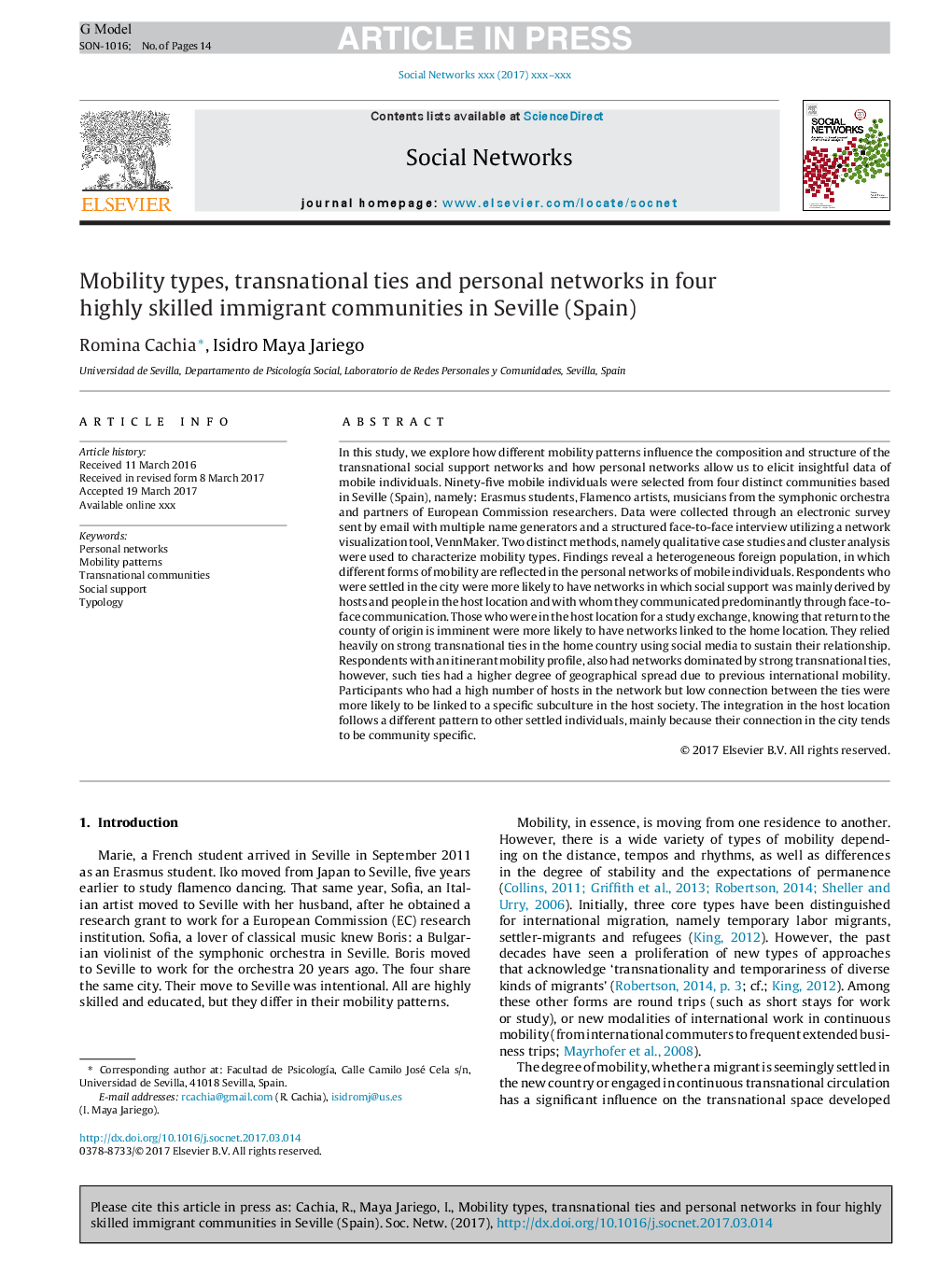ترجمه فارسی عنوان مقاله
انواع تحرک، روابط بین الملل و شبکه های شخصی در چهار جوامع مهاجر با مهارت بالا در سویل (اسپانیا)
عنوان انگلیسی
Mobility types, transnational ties and personal networks in four highly skilled immigrant communities in Seville (Spain)
| کد مقاله | سال انتشار | تعداد صفحات مقاله انگلیسی |
|---|---|---|
| 113632 | 2018 | 14 صفحه PDF |
منبع

Publisher : Elsevier - Science Direct (الزویر - ساینس دایرکت)
Journal : Social Networks, Volume 53, May 2018, Pages 111-124
ترجمه کلمات کلیدی
شبکه های شخصی، الگوهای تحرک، جوامع فراملی حمایت اجتماعی، گونه شناسی،
کلمات کلیدی انگلیسی
Personal networks; Mobility patterns; Transnational communities; Social support; Typology;

